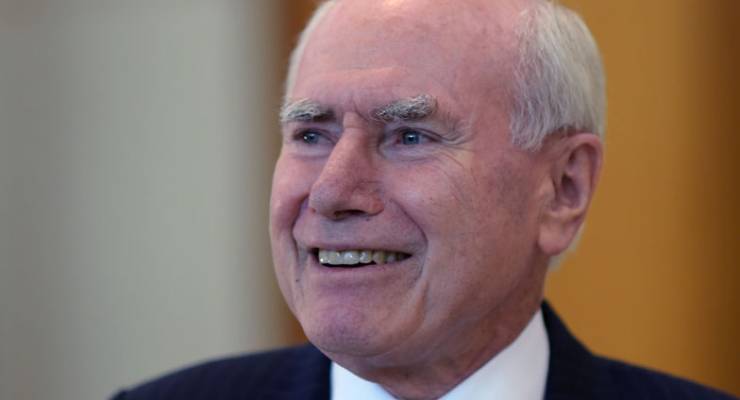
Bridget McKenzie’s rorted sports grants have been described by Labor as “industrial-scale pork barrelling”. But where do they fit in Australia’s broader political history?
Is this on the softer, “bottle-of-wine” end of the corruption spectrum, or could McKenzie conceivably face serious consequences? Check out Crikey’s guide to recent rorts and decide for yourself.
Michael Wooldridge’s suspected scan-scam
Allegations: Former health minister and deputy leader of the Liberal Party Michael Wooldridge held discussions with the College of Radiologists ahead of the 1998 federal budget, after which there was a surge in orders for $3 million MRI machines just before the budget gave medicare rebates for expensive scans.
Investigation: A 2000 auditor-general report was highly critical of the environment that led to radiologists understanding that machines were a budget option. However, citing contradictory claims between the radiologists and the minister and his team, it stopped short of finding that Wooldridge actually made the suggestion himself.
Consequences: Wooldridge was fine. He retired in 2001, paving way for new Liberal MP Tony Smith (who coincidentally went on to replace another controversial member, Bronwyn Bishop, as speaker).
Regional Partnerships program
Allegations: That the Howard government used the Regional Partnerships program, which began in 2003 and allowed ministers to override assessments of the department of transport and regional services, as a pork-barrelling fund for Coalition electorates.
Investigation: Released a week before the federal election, a 2007 auditor-general report found that, in more Coalition seats than those held by Labor, the government overrode departmental recommendations to not approve projects. The program was defended by Nationals leader Mark Vaile, who argued more Coalition seats only won-out because the Coalition had more regional seats.
Consequences: Nothing directly. Although Labor did go on to steamroll the Coalition a week later. Vaile kept his seat but resigned the leadership. He resigned from Parliament entirely in 2008, creating a byelection that was won by Rob Oakeshott.
John Howard’s advertising rort
Allegations: That the Howard government’s ministerial committee on government communications (a PM&C body made up of powerful body of backbenchers and prime ministerial advisers) overrode individual ministers and their department bureaucrats and dictated millions in government advertising in order to serve political interests.
Investigation: Jumping forward a few years to 2009, an Australian National Audit Office report found no evidence of independent assessments for political advertising and that Liberal friends in the advertising industry were contracted directly.
Consequences: While it was too late for the Howard government to see any consequences at all, Lindsay Tanner and John Faulkner binned the MCGC upon coming into government and handed control of advertising from PM&C back to the Department of Finance.
Labor’s stimulus program
Allegations: That Labor’s $800 million Regional and Local Community Infrastructure Program favoured ALP electorates.
Investigation: The Australian National Audit Office dropped a report just a few weeks after the 2010 election that found Labor failed to follow its own guidelines allocating money to local councils, that they hit major delays, and that projects in Coalition-held seats were twice as likely to miss out on funding.
Consequences: Again, nothing. Although Julia Gillard only won that election by the skin of her teeth.
Murray-Darling Basin grants
Allegations: That, as part of the Murray-Darling Basin Plan, the federal government wasted billions of dollars in handouts to irrigators, agricultural groups and farmers under the guise of grants for infrastructure efficiency.
Investigation: In early 2019, South Australia’s Murray-Darling Basin Royal Commission found that around $4 billion of taxpayer funding has been poured into concessional loans and grants for water infrastructure projects since 2015. This includes $1.6 billion on a grants program designed to fund infrastructure upgrades to return “water savings”, while buybacks were far more effective and far cheaper. Then-agriculture minister Barnaby Joyce was also found to have “ignored the law” in a letter to SA’s water minister citing negative social/economic risks to water recovery without any evidence.
Consequences: Well a great many ancient fish were killed early last year, but that’s about it.
The Great Barrier Reef grant
Allegations: That Malcolm Turnbull and Josh Frydenberg threw roughly half a billion dollars flagged for the Great Barrier Reef to a tiny, Business Council-linked startup on the fly and with no assessment or transparency.
Investigation: A Labor-backed Senate inquiry report called for the return of all unspent funds and described the “off-the-cuff” grant as “a highly irresponsible decision, hastily concocted by relevant ministers, without proper consideration of risks and potential effectiveness, no consultation with key stakeholders, and without having undertaken due diligence.”
Consequences: Hahahahaha.
Honourable mentions: Utegate, the franking credits inquiry, Angus Taylor’s non-stop “gates”.








The Rort is in the Aussie/Ozzie DNA ..Sometimes a raring on the ground good citizen pops up suggesting an antidote..Then ,after a bit of the good struggle, and overwhelming odds , it’s back to the Land of Oz business as usual.
And another honourable mention for the $498,000,000 to mate Brendan Nelson to aggrandise a perfectly adequate Australian War Memorial and turn it into a theme park for old war ironmongery. Dr Nelson has since left the the directorship of the AWM and former PM Abbott has been appointed to its Board.
The new appointment confirms the liberal party affections for the extreme right are still strong.
You’ve missed Droughtenvoygate, but I suppose there’s still stuff to come out about that.
The case for any Commonwealth grants to sporting organisations and for sporting facilities is weak. No wonder there are difficulties in allocating grants. This is yet another case of Commonwealth overreach.